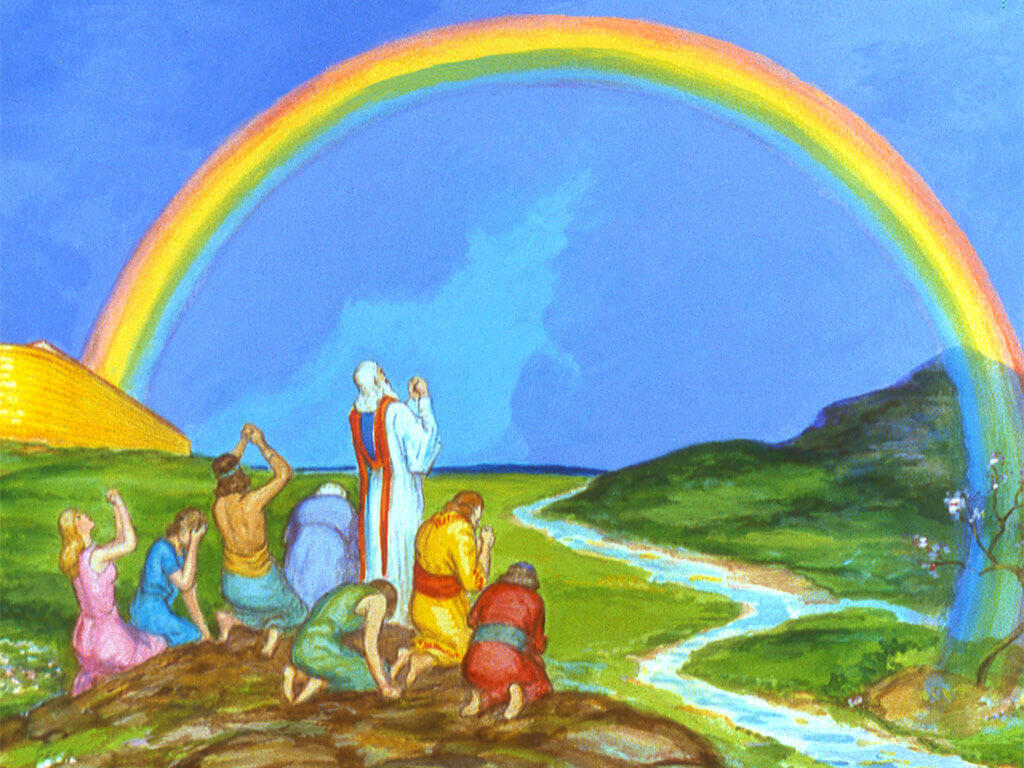Bible Covenants
By Mark Morgan | Jeremiah

A covenant is simply an agreement. Bible covenants are agreements made between people, or between God and people.
When we sign a contract, that is an agreement, and each country has many laws that detail just how binding such agreements are. These sorts of agreements and their associated laws have changed through history, and the Bible tells us of many agreements made thousands of years ago.
A few covenants between people are recorded in the Bible, often agreements between leaders to achieve peace. Abimelech made agreements with Abraham and Isaac and Laban made an agreement with Jacob that they would never attack each other. God forbade Israel from making agreements with the nations in the land of Israel, but in one case they were tricked into doing so. Jonathan made a covenant with David, David made one with Abner, the commander of Saul’s army, and so the list goes on.
Some agreements were kept and some were not. With our particular interest in the prophet Jeremiah, there is a covenant in Jeremiah chapter 34 that is worth looking at further.
When King Nebuchadnezzar of Babylon attacked Judah, the inhabitants of Judah were afraid. Maybe because of the consistent messages of Jeremiah and other prophets, they feared that this might be a punishment for their behaviour and decided to do a little tidying around the edges of their religious life.
God had strict rules about servants and slaves: he forbade his people from keeping Hebrews as slaves (Leviticus 25:39-46). The people knew that they were breaking those rules. Possibly in a bid to avoid punishment for this, King Zedekiah made a covenant with all the people to free their Hebrew slaves (Jeremiah 34:8). Everyone did what they had agreed (Jeremiah 34:8-10), but later they changed their mind and took them back as slaves (Jeremiah 34:11). Why would they do such a thing? The answer is probably that the immediate fear of punishment receded because King Nebuchadnezzar temporarily withdrew his army from Jerusalem (Jeremiah 34:21). The masters missed the work of their slaves and wanted them back.
God condemned this behaviour, reminding them that because the covenant was made before him in his temple, it was really a covenant made with him. He told them that, because of their breach of trust, the Babylonian army would return and destroy Jerusalem, burning it with fire. This is precisely what happened – within two years.
Covenants are important to God because agreements reflect commitment, and being faithful to a commitment is vital to God.
Have you ever made a commitment to do something and then broken it? – and I don’t mean accidentally. If so, then God doesn’t like it.
God has never broken a covenant. Let’s look at a few that were kept or are still being kept:
Almost all of God’s Bible covenants are conditional: Noah had to obey and build the ark, Abraham had to obey as did his descendants, all male descendants of Abraham had to be circumcised, the Israelites had to obey the Law of Moses, Aaron’s descendants had to serve as priests.
Some Bible covenants had some form of proof or reminder associated with them:
When we make agreements now, both parties must agree. As our creator, God has rules for the people he created, but he also has special benefits which he offers – benefits that are only available for people who “sign up”. If people want the special offers that God makes, they have to agree to his conditions. For example, Abraham and his descendants had to be circumcised and follow God’s requirements. Abraham thought any discomfort was worthwhile, and so did many righteous people who followed afterwards. For followers of Jesus, it means baptism, sharing bread and wine, and obeying God’s commands. The promised benefits? – Life forever.
God will always keep his agreements. What about you?
Covenant (law) (Wikipedia)
Covenant (Biblical) (Wikipedia)
This article is one of a series of articles on Jeremiah published as back-up material for the Bible-based fiction series Terror on Every Side!
[ More information | Purchase ]
Subscribe to our newsletter
Enjoyed this article? Articles on this site summarise the research we do in writing our Bible-based fiction. If you enjoy reading real Bible-based fiction or are willing to give it a try, enter your name and email address in the fields below, then click "Subscribe". You'll get a new micro-tale, or an informative article every week, as well as occasional special offers from Bible Tales Online. You can unsubscribe at any time.
See our Privacy Policy.